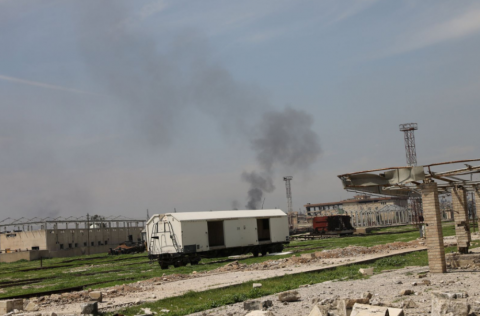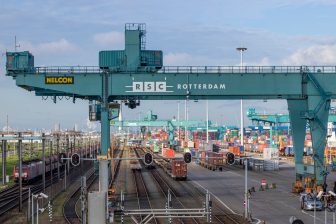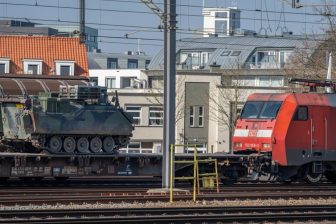
War-damaged wagon stands as reminder of rail dream
A lone freight wagon stranded at Mosul’s wrecked rail hub stands as an unlikely symbol of war, and what was once part of an ambitious dream to establish a rail link between Baghdad and Berlin. Freight cars have been idly waiting in the war-ravaged northern Iraq city since Islamic State fighters moved in two years ago. And with the main station and rail infrastructure destroyed, it’s not a situation that is about to change.
Iraqi soldiers taking cover from sniper fire behind piles of sand is the only activity in what is left of a station planned as part of a historic German-Ottoman rail project to link the Iraq and German capitals. It’s one of a series of images from Reuters News Agency documenting the hub’s sad demise.
Demise
Relentless bombing brought an end to the working days of the 79 year-old two-storey station, which had once been a bustling freight interchange. The roof has long since collapsed, while the main building is now effectively a hiding place for soldiers avoiding enemy fire.
Mosul was once part of a plan called Bagdadbahn, or the Baghdad Railway, an ambitious scheme for linking Berlin with Baghdad and the Gulf port of Kuwait, both then part of the Ottoman empire. The collapse of the empire following the First World War however put the brakes on the project, and following the conclusion of the war and the subsequent Treaty of Versailles, various nations laid claim to the line.
Gateway
Mosul later became a gateway for cargo and passenger trains from Syria and Turkey to Baghdad and Basra in the south. Traffic thinned during the 1990s when Iraq was under U.N. sanctions after Saddam Hussein’s Kuwait invasion, as little was spent on maintenance. Security concerns forced rail services from Mosul to stop in 2012. Yet preparation were underway to restart regular trains to Turkey and Baghdad when lslamic State arrived in June 2014.





